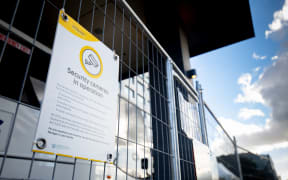New Zealand is in "slightly uncharted territory" as it attempts to drive the R number of the Delta variant outbreak down under 1 for a sustained period, a Covid-19 modeller says.

The R number (reproduction number) is the average number of people infected by someone with the virus. If the R number's bigger than 1, the outbreak grow. If it's less than 1, the number of cases goes down. Photo: 123rf.com
The Ministry of Health reported 75 new cases in the community yesterday, a number that was no cause for alarm, according to Director-General of Health Dr Ashley Bloomfield, despite being up from the 49 reported the day before.
Bloomfield said the R value, based on the latest modelling, continued to be promising. There was a 90 percent probability it remained under 1, showing the lockdown was continuing to work and chains of transmission were being broken.
The R number (reproduction number) is the average number of people infected by someone with the virus. If the R number's bigger than 1, the outbreak grow. If it's less than 1, the number of cases goes down.
University of Canterbury Covid-19 modeller professor Michael Plank told Morning Report the R number was "likely" below 1, but that was not enough on its own.
"We really need to get it well below 1 in order to start bringing cases down quickly, because if the R number is .9 that means cases are coming down, but they'll come down very slowly and you know the lockdown could then drag on for weeks or months.
"So we really need to drive that R number down so more like .7 and just to start seeing the cases come down more quickly and hopefully be able to eliminate the outbreak."
Asked if anyone had got the R number for Delta down as low as .6 of .7, Plank said "Queensland did eliminate - or it looks like they eliminated an outbreak of the Delta variant. It wasn't as big as this one, and it's difficult to estimate these R numbers when you have a small number of cases, but we know it is possible to control Delta in that way.
"New Zealand is in slightly uncharted territory here. Not many countries have managed to control Delta and get an R number that's less than 1 over sustained period, but we know that what we're doing is effective and we have a good chance of doing that.
"It's a good sign that that you know three quarters of new cases are not in the community whilst infectious, because that means they're not at risk of spreading the virus to other bubbles, but this is a key number, and so it'll be important to watch over time the number of new cases that are in the community whilst infectious, and we will obviously want to see that number coming down."
As for the daily case numbers, Plank said: "We never want to read too much into a single day's numbers. What matters is the trend, I think it looks like we're seeing the beginnings of a downward trend, but it is very early days, and we'll need to see how that trend develops and how quickly it's going downwards over the next few days.
"One of the reasons the numbers will bounce around is that people will be due for tests on different days, and that can certainly contribute to, you know, when exactly the cases are reported."






